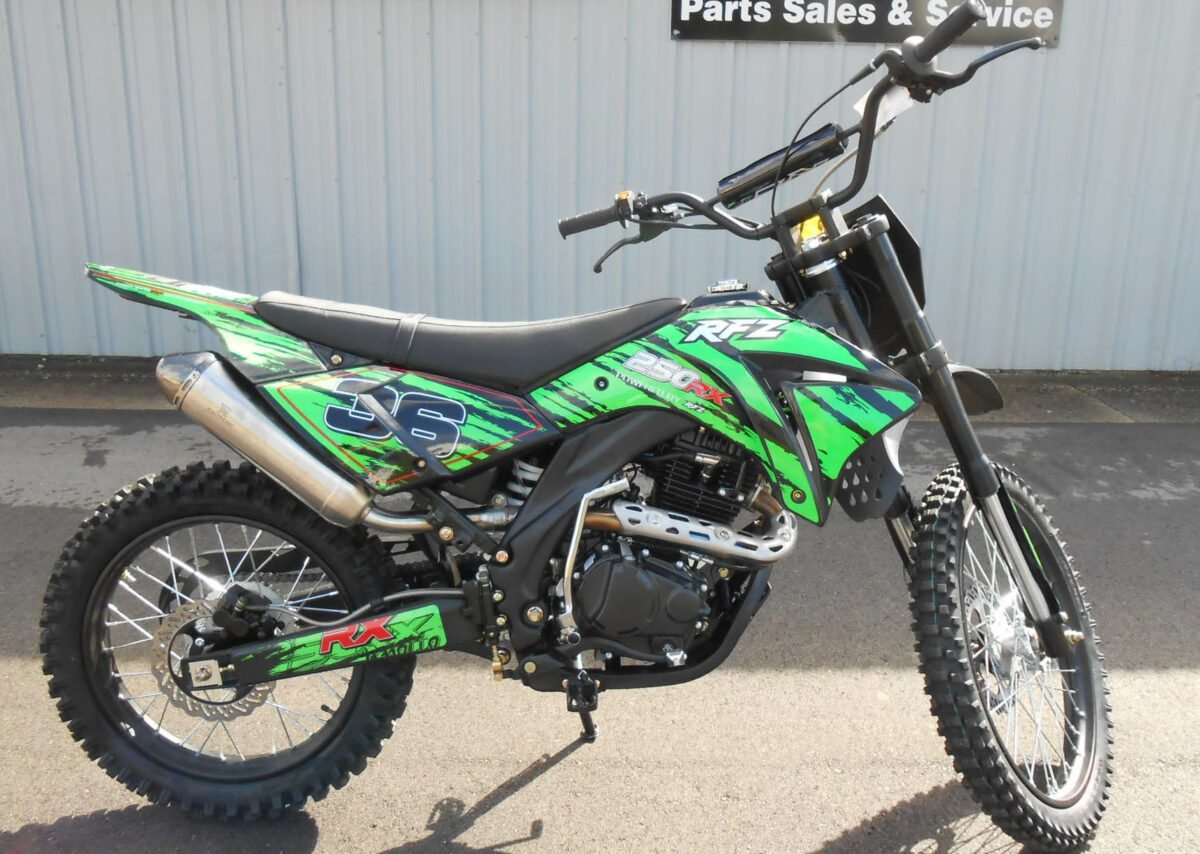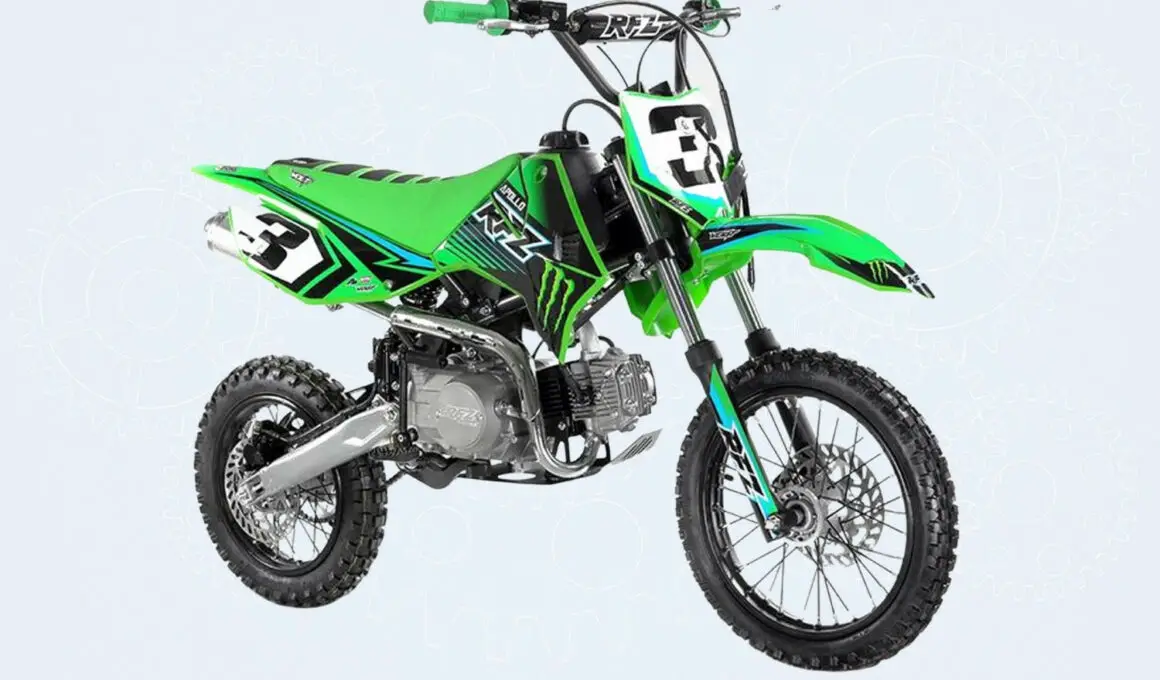In This Article Show
Riding through rugged terrains and feeling the adrenaline pump through my veins is a sensation I’ve come to cherish over my years as an off-roading expert.
With a specialty in equipment such as ATVs, UTVs, and Dirtbikes, having written about a couple of them like the cub cadet volunteer problems, Kawasaki Mule Diesel features and others , I’ve navigated through countless dirt paths and experienced the roar of various engines beneath me.
Apollo, a brand that’s been under many radars lately, particularly caught my attention. With its rising popularity in the dirt biking realm, many enthusiasts ask, “Are Apollo dirt bikes really good?”
I’ve taken the time to delve deep into the world of Apollo, and in this guide, I’ll share my findings. Whether you’re a beginner looking for your first ride or a seasoned biker considering an Apollo, I promise to keep things straightforward. Drawing from my extensive experience with off-roading equipment. Let’s go.
History and Background of Apollo Dirt Bikes
In the vast world of dirt bikes, Apollo is a name that may not have the century-old legacy of some brands, but it’s been making waves in recent years. Let’s travel back in time and understand the roots of this emerging player in the off-roading industry.
Origins of the Apollo Brand
Apollo Motorcycle, often referred to as Apollo, is a Chinese-based company. Now, I know what some might be thinking: “Chinese bikes? Are they up to par?” Over the past couple of decades, China has significantly upped its game in manufacturing, and Apollo stands as a testament to that.
Established in the early 2000s, Apollo aimed to bring affordable yet reliable dirt bikes to the global market.
Evolution Over the Years
Since their inception, Apollo has focused on both innovation and accessibility. Their lineup started with smaller, entry-level bikes catering primarily to beginners. But as the years progressed, so did their offerings.
Today, they boast a range of dirt bikes suitable for various skill levels, from 50cc models for young riders to powerful 250cc beasts for the more experienced.
One thing that stood out during my years specializing in off-roading equipment, including ATVs and UTVs, is how Apollo continually seeks feedback.
They’ve been adaptive, making tweaks and changes based on rider experiences and needs. This iterative approach has improved their bike’s performance, durability, and overall riding experience.
The Global Reach
While originating in China, Apollo’s vision was never limited to its home turf. They’ve expanded their reach globally, making a mark in North America, Europe, and other parts of Asia. Their commitment to quality at an affordable price point has garnered them a loyal following of riders who appreciate the value they bring.
In a nutshell 🚲
Apollo’s journey from a fledgling brand in China to a recognized name in the global dirt bike community is nothing short of impressive. Their history speaks volumes about their dedication to the sport and their riders. As we move forward, we’ll delve deeper into the specifics of what makes their bikes stand out, and where they might fall short.
Pros of Apollo Dirt Bikes
1. Affordability
For many riders, especially those just starting out, cost is a significant consideration. Apollo shines brightly in this aspect. They’ve consistently offered dirt bikes that don’t break the bank.
Compared with other brands, especially the big-name players, an Apollo bike often comes at a fraction of the price. This affordability has opened the door for many enthusiasts who might have otherwise been priced out of the sport.
2. Variety
Apollo’s range caters to a broad spectrum of riders. From the young ones taking their first ride on a 50cc model to seasoned riders who crave the power of a 250cc, there’s an Apollo for everyone. The variety doesn’t just end with engine capacity; they offer different styles and designs, ensuring that riders have choices that suit their aesthetic and functional preferences.
3. Durability and Construction
While they’re priced lower than many competitors, Apollo hasn’t cut corners when it comes to build quality. Their bikes are crafted using sturdy materials that can withstand the typical rough and tumble of off-road riding.
Over the years, they’ve improved their construction techniques, resulting in robust and reliable bikes. For those who might have reservations about the longevity of an affordably-priced bike, many Apollo riders can attest to their bike’s resilience over time.
4. Ease of Maintenance
One of the often-overlooked advantages of Apollo bikes is how user-friendly they are when it comes to maintenance. Spare parts are readily available and typically more affordable than those of high-end brands.
For riders who prefer to handle basic repairs and maintenance themselves, Apollo bikes are straightforward to work on. This ease of maintenance saves money and reduces downtime, ensuring riders can get back on the trail quicker.
To summarize 🚲
Apollo dirt bikes offer an enticing package: they’re affordable, diverse in range, built to last, and relatively easy to maintain. These strengths make them a compelling choice for new and experienced riders. However, like all brands, they have their cons too, we’ll discuss that next.

Cons of Apollo Dirt Bikes
1. Performance Limits
While Apollo bikes are excellent for their price range, they might not match up to some top-tier brands’ power and performance capabilities. Riders who are looking for extremely high-speed bikes or those made for professional racing might find Apollo’s offerings a tad underwhelming in this aspect.
The average rider is more than sufficient, but for the speed junkies or professional racers, there might be a bit left to desire.
2. Availability of Parts in Remote Areas
While Apollo has made significant inroads in the global market, its reach in some remote areas might be limited. If you’re in a major city or a recognized dirt biking hub, sourcing Apollo parts isn’t a challenge.
But, for riders in more secluded regions, finding specific Apollo replacement parts might take a bit longer than for more established brands. This could mean longer downtimes in case of significant breakdowns.
3. Resale Value
A trade-off of their affordability is the resale value. While Apollo bikes are economical upfront, they might not hold their value as well as some of the iconic brands in the industry. If you’re looking at your bike as an investment with the plan to upgrade in the near future, this is a factor to consider. The depreciation might be faster than with some of the more recognized brands.
In essence 🚲
While Apollo dirt bikes have many advantages, they aren’t without drawbacks. Potential buyers must weigh these cons against the pros and consider what they’re looking for in a dirt bike. The benefits far outweigh the limitations for many, but it’s all about individual preference and use-case scenarios.
Apollo Dirt Bikes: Who are they best for?
Dirt biking is a diverse sport, with riders coming from various backgrounds, having different skill levels, and harboring varied expectations. Understanding this diversity, let’s try to pinpoint who might benefit the most from an Apollo dirt bike:

1. Novices
Apollo’s range of beginner-friendly models makes them an excellent choice for those just dipping their toes in the world of dirt biking. Their bikes are forgiving, often designed with the learner in mind. The safety features, manageable power, and overall design cater to those who are still building their confidence on the trail.
2. Budget-Conscious Riders
Apollo is a godsend for those who want a decent off-road experience without splurging. The brand balances cost and performance, making it a preferred choice for riders who are cautious about their expenditures but still crave quality.
3. Casual Riders
Not everyone needs a high-performance racing machine. Apollo provides just the right balance for those who enjoy the occasional weekend ride or like to hit the trails with friends and family without any competitive intent.
These bikes are sturdy, fun, and give the thrill of dirt biking without the need for professional-grade specs.
4. Riders in Urban or Suburban Areas
Given the easy availability of Apollo parts in cities and major towns, those living in these areas can benefit from the brand. Maintenance becomes hassle-free, and any necessary repairs or replacements can be addressed promptly.
5. Intermediate Riders Looking for a Backup or Secondary Bike
Seasoned riders sometimes seek a backup bike – one they can use when their primary is out of commission or lend to a friend. Apollo bikes fit this niche wonderfully due to their affordability and reliability.
To conclude 🚲
Apollo dirt bikes cater to a wide audience, but they seem tailor-made for the above categories. While they might not be the first choice for professional racers seeking top-notch performance, they hold their ground firmly in providing quality and fun to a broad spectrum of riders. The key is understanding your needs as a rider and seeing where Apollo fits into that picture.
Comparing Apollo with Other Brands
Navigating the dirt bike world often involves drawing comparisons to make an informed decision. Let’s see how Apollo fares against some of the more established brands in the industry:
| Criteria | Apollo | Honda | Yamaha | Kawasaki |
|---|---|---|---|---|
| Average Price | $1,200 – $2,500 | $2,500 – $9,000 | $2,700 – $9,500 | $2,600 – $8,800 |
| Engine Capacity | 50cc – 250cc | 50cc – 450cc | 50cc – 450cc | 65cc – 450cc |
| Top Speed (approx.) | 30 – 70 mph | 30 – 123 mph | 33 – 125 mph | 35 – 122 mph |
| Weight Range | 150 – 250 lbs | 140 – 250 lbs | 145 – 245 lbs | 150 – 240 lbs |
| Target Audience | Beginners, Intermediate | Beginners to Professionals | Beginners to Professionals | Beginners to Professionals |
1. Apollo vs. Honda
Price: Apollo is generally more affordable, catering to budget-conscious riders. In contrast, with its longstanding reputation, Honda comes at a premium price.
Performance: Honda is known for its powerful and high-performing bikes, especially in the professional racing domain. Apollo has commendable performance, particularly for its price range, but might fall short of Honda’s top-tier models.
Durability: Both brands are known for durability, but Honda, with its decades of experience, often has an edge in terms of long-term reliability.
Target Audience: While Apollo caters predominantly to novices and casual riders, Honda has a broader range, from beginner models to professional racing bikes.
2. Apollo vs. Yamaha
Price: Similar to Honda, Yamaha’s bikes generally come with a higher price tag compared to Apollo.
Performance: Yamaha’s bikes, especially their professional range, boast superior performance metrics. Apollo offers good performance but might not match up to Yamaha’s elite models.
Durability: Yamaha is renowned for its build quality and durability. While robust for its price point, Apollo might not match up in terms of longevity.
Target Audience: Yamaha has a diverse range of bikes for all skill levels. Apollo’s primary focus remains on beginners and intermediate riders.

3. Apollo vs. Kawasaki
Price: Like most established brands, Kawasaki has a higher price range than Apollo.
Performance: Kawasaki is another giant known for its top-performing bikes. Apollo provides good value for its price but is designed more for casual and intermediate use rather than high-end racing.
Durability: Both brands offer durable options, but Kawasaki, with its deep-rooted history, might edge out in terms of prolonged rugged use.
Target Audience: Kawasaki caters to a wide audience, from novices to pros. Apollo’s niche remains those seeking affordability without sacrificing too much on quality.
While each brand, including Apollo, has its strengths and weaknesses, the choice boils down to individual preferences, needs, and budget. Apollo offers a compelling package for those who want a balance of affordability and quality.
Established brands like Honda, Yamaha, and Kawasaki bring their own set of advantages, mainly stemming from their long histories and extensive research and development investments.
For a potential buyer, understanding where they fall in the spectrum of riders – from casual weekenders to professional racers – will guide their decision-making process. It’s essential to weigh the pros and cons of each brand against personal requirements and expectations.









